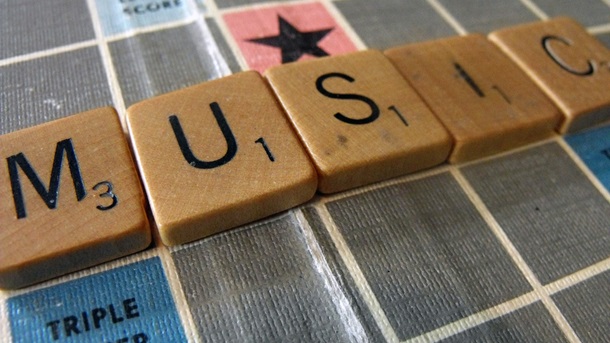Is there a language in music?
The language of music is vast, however, just like the many spoken languages of the world, not all music will speak a dialect you can easily understand. What is in the music that you and I love that speaks so clearly and directly to us?
Some say music explains itself, you just have to know the language. Stravinsky and Beethoven didn’t seem to think that music said anything. I used to say, and I’m not the first, that all music is abstract, that music is not concrete. If music says anything directly about a subject, it is only because of the labels we apply to it. But, is that true? Does a march sound like a march only because when we hear marching music we associate people marching to that style of music?
Does a lullaby sound like a lullaby because a parent used to sing you to sleep with Rock-a-bye Baby? If that actually ever happened to anyone outside movies that is.
Does Tchaikovsky’s 1812 Overture sound like a piece of victory music?
It was written to commemorate Russia’s successful defence against Napoleon’s army, but we know it through that label and its connection to that period. Why couldn’t it have been written to celebrate a new Tsar, or the naming of a new country? Why not even a world cup victory? The 1812 Overture could be about any of those events, couldn’t it?
It appears that labelling music is firstly important, and secondly, largely done after the event of composition, especially in the classical music world. Most of the time, these labels are applied by a historian or a cataloguer and not by the composer of the piece.
Haydn and Mozart never gave nicknames to their music. Others did so it would give their pieces a description that people can connect to, or so they could recall that music through its nickname. You may have heard of Haydn’s “Surprise Symphony”, but what number is it and what key is it in?
Even if you know the number or key, which description makes you remember what it sounds like? Symphony No. 94 in G Major or the Surprise Symphony? And which description better defines that piece of music to you? Maybe labels are useful.
Does labelling music help us understand it? In one sense labels work and add something to help us remember a piece of music, but what if someone had named Haydn’s Symphony No. 94 the “shock” symphony? Would that description make us think differently about what the music means? A surprise can be connected to feelings of joy and happiness, but a shock is something that usually brings on disbelief or horror.
Labels do and do not work, but once a label is applied, and it gets out, that’s it. There is no changing a tag once applied.
If we don’t label a piece of music, how do we understand it? We might try to compare music to something we know to define it. Speech seems an obvious comparison. Music and speech are saying something, so there must be similarities. American composer John Cage of the silent piece Four minutes, thirty-three seconds, said, “When I hear music, it’s like the sound of someone talking to me”.
Most words and the conversations you have with people are not abstract. Your dialogue usually has a pattern and a point, otherwise, you wouldn’t be saying it. We can listen to music and experience things that often feel like words that a friend or lover might say to us. Music can make us remember a time or a place, and just like the sense of smell, music can bring back the most passionate and strongest feelings and make us fall over.
But, another person can hear that same music and it won’t mean anything to them.
Is all music just abstract then? Working with music and musicians as I do, I see it as far from abstract. Because every note, every articulation is meant to convey a particular meaning or emotion. For me, music should be a rollercoaster ride of feelings. The language that I try to express in my music is meant to offer a range of human experiences, like holding someone’s hand or having another person read to you.
If you love music, you probably don’t think that it’s an abstract sound. Look at your music collection, that will tell you how you feel about the music you love and what language it speaks to you.
